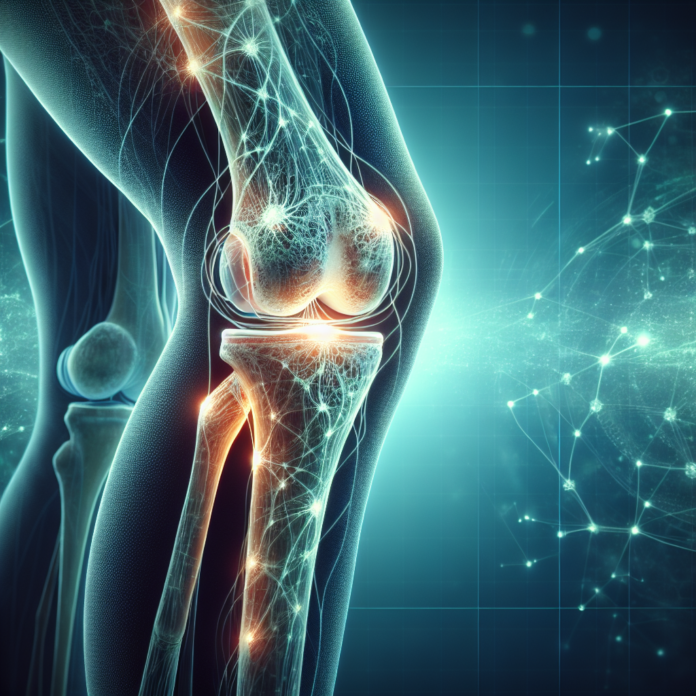When it comes to joint injuries, the meniscus tear is a common and often troublesome condition. This C-shaped cartilage located at both the inside and outside of the knee serves as a vital shock absorber and stabilizer for the knee joint. Unfortunately, these tears are notorious for their poor healing capabilities due to an insufficient blood supply. In most cases, surgical intervention is required to restore function and alleviate pain, especially in younger individuals who are more physically active. However, the potential for alternative treatments, such as peptides, is a topic of growing interest in the medical community.
One peptide that has garnered attention for its possible regenerative effects is Body Protection Compound 157 (BPC 157). BPC 157 is a short chain of amino acids naturally produced in the body, specifically in the gastric juices. It is believed to play a role in healing processes, and synthetic versions are available from approved compounding pharmacies. Despite its potential, BPC 157 remains an experimental treatment, with the FDA yet to approve it for medical use.
The Theoretical Benefits of BPC 157
Proponents of BPC 157 suggest that it might aid in healing due to its purported regenerative properties. It is thought to potentially support tissue repair and regeneration, reduce pain and inflammation, and improve recovery timelines. Yet, the evidence supporting these claims remains largely anecdotal, with limited scientific studies to back them up, especially regarding intra-articular issues like meniscus tears.
Current Medical Evidence and Skepticism
To date, there is no substantial body of peer-reviewed research that conclusively demonstrates the efficacy of BPC 157 for treating meniscus tears in humans. While some laboratory studies have shown promising results regarding tissue healing, these have not been sufficiently replicated in human trials. Injections into the joint space have also been met with skepticism, as there is doubt about the ability of the peptide to penetrate deeply enough into the knee joint to impart healing effects.
Potential Role as a Pain Reliever
Though BPC 157 might not heal a meniscus tear, it could potentially serve as a pain reliever. Pain management without opioids or invasive surgeries is a compelling draw for many patients with meniscal injuries, and peptides might offer a safer alternative for reducing inflammation and discomfort associated with these injuries.
Considering Other Regenerative Treatments
While peptides like BPC 157 remain largely unexplored in terms of solid medical evidence, other regenerative treatments have shown more promise. Some alternative therapies that have been more extensively studied include:
- Exosomes: These small vesicles play a role in cell communication and can help stimulate healing. They are currently being explored for joint injuries, including meniscus tears.
- Stem Cells: Derived from bone marrow or adipose tissue, stem cells have shown potential in regenerating damaged tissues, including cartilage.
- Platelet-Rich Plasma (PRP): By concentrating platelets from your blood and injecting them into the injured area, PRP has been shown to support healing and reduce pain in some orthopedic conditions.
Discussion and Consultation with Medical Professionals
Before considering peptide therapy or any regenerative treatment, it’s imperative to engage in a detailed discussion with a healthcare professional who specializes in orthopedic injuries. These experts can offer guidance based on the latest research, potential risks, and how these treatments align with your specific health conditions and goals. It’s also critical to consider whether these experimental treatments are right for you, as they may not be suitable for everyone and often involve out-of-pocket expenses.
Dr. David Guyer, an orthopedic surgeon with expertise in sports medicine and regenerative therapies, stresses that each patient’s situation is unique, and careful consideration should be made before pursuing non-conventional options. Moving forward with peptide therapy or other regenerative approaches requires careful weighing of the current evidence, potential benefits, and associated risks.
In conclusion, while peptides like BPC 157 present an intriguing frontier in regenerative medicine, their role in healing meniscus tears remains largely unproven. Patients are encouraged to stay informed, consider all available options, and make decisions based on comprehensive consultations with knowledgeable healthcare providers. The journey to recovery involves not only healing the physical injury but also navigating the complex landscape of emerging medical treatments.
Exploring BPC 157 for meniscus tears: This peptide might aid healing but remains unproven in human studies. Before seeking alternatives, consult medical experts.
